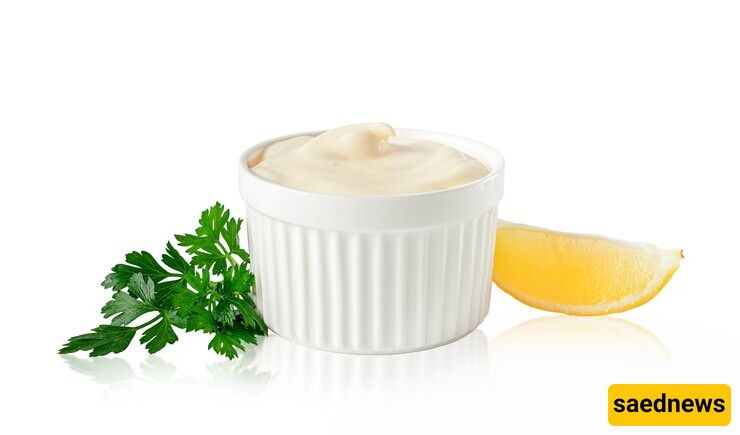SAEDNEWS: Cream is a popular food enjoyed by many. It is a type of dairy product with variations such as low-fat cream, whipped cream, heavy cream, and full-fat cream. There are numerous aspects of this breakfast item that are worth knowing.

According to SAEDNEWS, Cream is one of the most popular food items. Many people consume it with honey, sugar, dates, and other accompaniments at breakfast or use it to prepare sauces, soups, desserts, and cakes. Moderate consumption of cream offers many health benefits. However, it is high in fat and calories, and excessive consumption can lead to weight gain.

Animal cream contains vitamin B2, which, along with other B vitamins, helps the body produce red blood cells. Consuming adequate amounts of this vitamin can also boost cellular performance, ultimately energizing the body. Cellular functions such as breaking down fats, proteins, and carbohydrates are supported. Vitamin B supplements may provide a similar energy-boosting effect.
One of the health benefits of consuming cream is its vitamin A content. Vitamin A, a fat-soluble vitamin, is abundant in animal cream. This vitamin helps maintain good vision and eye health by preserving the retina, improving the eye's adaptation to darkness and intense light, preventing night blindness, and keeping the eyes moisturized.
Consuming dairy cream with vitamin A boosts the immune system’s ability to combat infections and prevents respiratory and infectious diseases.
Cream derived from milk contains phosphorus, a mineral essential for the growth of bones and teeth. Alongside calcium, phosphorus plays a key role in building strong bones, strengthening tooth enamel, and maintaining gum health.
It might seem surprising, but consuming animal cream can help treat and alleviate depression. This is because cream contains vitamin D and omega-3 fatty acids. Studies show that vitamin D and omega-3 intake, as well as avoiding mineral deficiencies, can prevent the secretion of hormones that cause depression and mood disorders.
Dairy cream, rich in vitamin B2, is vital for the growth and development of body tissues, including the eyes, mucous membranes, skin, nervous tissue, connective tissue, and reproductive organs. This vitamin also enhances the health of hair, nails, and skin.
Cream contains significant amounts of phosphorus, a mineral that boosts focus, memory, and mental performance. Adequate phosphorus intake supports cognitive development and prevents neurological diseases like dementia and Alzheimer's, as well as other cognitive disorders.

Cream can be a tempting choice for breakfast, but its unhealthy fats make excessive consumption inadvisable.
Its nature (whether pasteurized or non-pasteurized) is considered cold and moist.
Cream is often consumed with a sweetener like jam or honey. Honey is considered its best complement, mitigating some of the harmful effects of cream.
Driving: 34 minutes
Walking: 26 minutes
Skipping: 9 minutes
Football: 13 minutes
Baseball: 18 minutes
Volleyball: 26 minutes
Hiking: 15 minutes
Those with excessive moisture in their stomach and related issues like acid reflux or bloating.
Individuals with weak stomachs and low activity levels.
People with high cholesterol levels.
Those with throat and chest phlegm, bloating, or a heavy stomach should also avoid cream.
While cream is derived from milk, its high fat content classifies it as a fatty food, similar to butter and clotted cream. The higher the fat content, the more calories, vitamin A, E, and D it contains, but the levels of vitamins B, C, and folic acid decrease. Cream is not a suitable substitute for low-fat dairy products and cannot meet the body’s calcium and protein needs. It’s important to remember that dairy is essential for maintaining health and cannot be eliminated from the diet.

